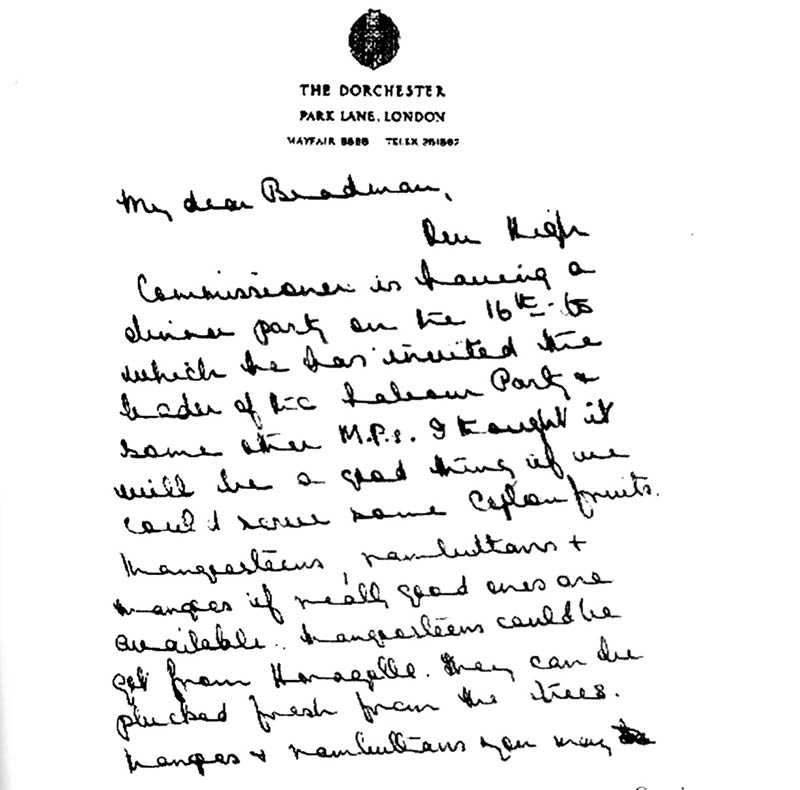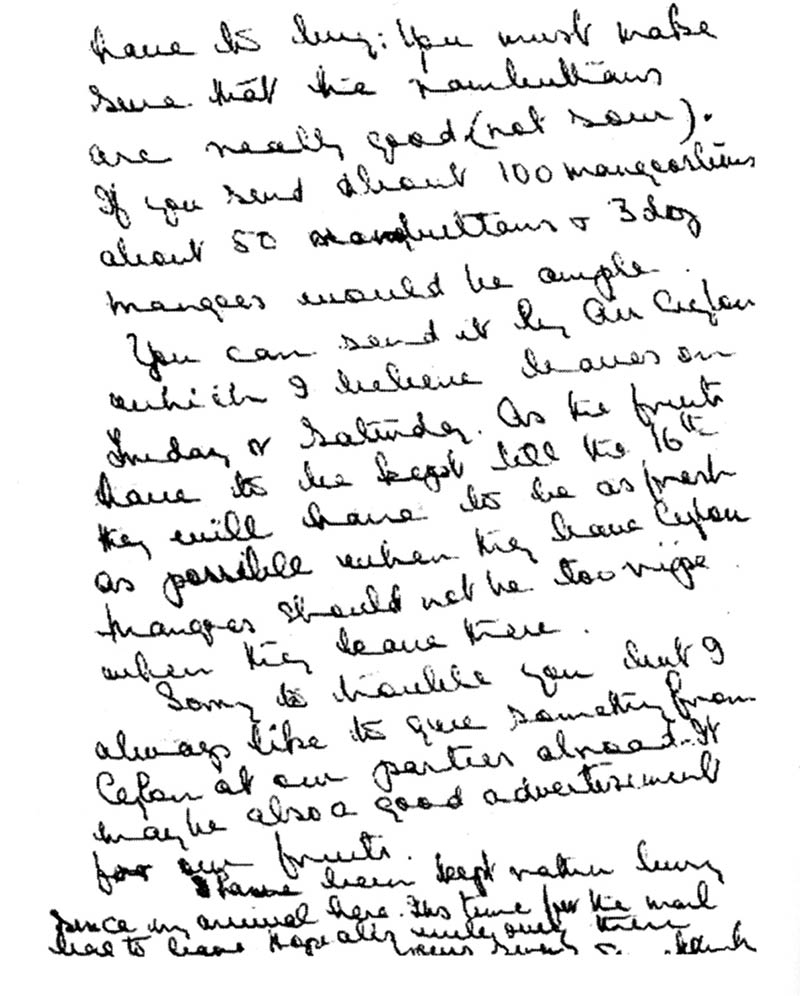Politics
Australia, Lanka and politicizing asylum

By Binoy Kampmark
When it comes to the tawdry, hideous business of politicising the right to asylum, and the refugees who arise from it, no country does it better than Australia. A country proud of being a pioneer in women’s rights, the secret ballot, good pay conditions and tatty hardware (the Hills Hoist remains a famous suburban monstrosity) has also been responsible for jettisoning key principles of international law.
When it comes to policy Down Under, the United Nations Refugee Convention is barely worth a mention. Politicians are proudly ignorant of it; the courts pay lip service to the idea while preferring rigid domestic interpretations of the Migration Act; and the United Nations is simply that foreign body which makes an occasional noise about such nasties as indefinite detention.
It should therefore have come as no surprise that, in the dying days of the Morrison government, another chance to stir the electorate by demonising refugees arose – somewhat conveniently. As voters were, quite literally, heading to the polls, the commander of the Joint Agency Task Force Operation Sovereign Borders, Rear Admiral Justin Jones, revealed that a vessel had “been intercepted in a likely attempt to illegally enter Australia from Sri Lanka.”
The Rear Admiral’s statement insisted that Australian policy on such arrivals had not changed. “We will intercept any vessel seeking to reach Australia illegally and to safely return those on board to their point of departure or country of origin.” Shallow formalities are observed: the implausible observance of international laws, consideration of safety of all those involved “including potential illegal immigrants”. Nothing else is deemed worthy of mention. “In line with long standing practice, we will make no further comment.”
With only a few more hours left being Australia’s most jingoistic Defence Minister in a generation, Peter Dutton tweeted a warning, referring to the statement from Jones: “Don’t risk Australia’s national security with Labor.” In another comment, Dutton decided to peer into the minds of those aiding the asylum process. “People smugglers have obviously decided who is going to win the election and the boats have already started.”
The Minister for Home Affairs, Karen Andrews, was also mining the message for its demagogic potential, raising the spectre of emboldened people smugglers. They, she squeaked, “are targeting Australia.” The “people smuggling vessel” had been intercepted “off Christmas Island.”
Andrews might as well have been using the same language to condemn drug traffickers and their commodities which, in terms of analogy, Australian politicians have implicitly done for decades. But for the occasion, the obvious target was the opposition vying for government. “Labor’s flip flopping on border protection risks our border security. You can’t trust them.”
The Liberal Party’s electioneering machinery picked up on the Sri Lankan connection, bombarding voters in marginal seats with text messages about this newfound discovery. “Keep our borders secure by voting Liberal today,” came the prompt. As things transpired, the entire operation, from Cabinet to the distribution of phone messages, had the full approval of Prime Minister Scott Morrison.
Revealing the existence of ships moving on mysteriously convenient schedules (another, according to the Saturday Newspaper, was also intercepted by Sri Lankan authorities) raised two burning questions. The first goes to the troubling relationship with Sri Lanka, which the Australian government had gone some ways to promoting as a safeguard against asylum seekers. Canberra has tended to skirt over issues of human rights, not least those associated with that country’s long civil war. In fact, Australian officials have done their best to encourage Colombo to prevent individuals leaving Sri Lanka with a view of heading to Australia by boat. In 2013, 2014 and 2017, Bay-class naval vessels were gifted to the Sri Lankan Navy to aid the interception of smuggling operations.
During his time in office, Dutton has made more than the odd trip to Colombo. In May 2015, he made a visit as then Minister for Immigration and Border Protection to discuss “continued cooperation regarding people smuggling and to further strengthen ties between our two countries.” He duly rubbished people smugglers – they had been “cowardly and malicious” for aiding individuals to pursue their right to asylum – and praised the success of Operation Sovereign Borders. “Since we started turning back boats there have been no known deaths at sea.”
In June 2019, he paid another visit to shore up the commitment. It was prompted by a report that a vessel carrying 20 Sri Lankan asylum seekers had been intercepted off Australia’s north-west coast, with the possibility of six others on route. Then, as now, Dutton could only blame his Labor opponents for somehow encouraging such journeys while reiterating the standard, draconian line. “People are not coming here [to Australia] by boat and regardless of what people smugglers tell you, the Morrison government, under the Prime Minister and myself, will not allow those people to arrive by boat.”
The second question goes to the supposed success of Operation Sovereign Borders. This military grade, secretive policy had supposedly “stopped the boats” and remains a favourite Coalition mantra. But why reveal a chink in the armour, a breach in the fortress unless it was manufactured with the aid of the Sri Lankan authorities or a failure to being with? As comedian and political commentator Dan Ilic observed in a pointed remark to Dutton: “This happened on your watch dude.” The Sri Lankan revelation demonstrated, when it comes to such matters, mendacity oils the machine of border protection.
No side in Australian politics has been able to avoid politicising the issue of refugee and asylum arrivals via boat. The moment Australia’s Labor government made the arrival of individuals without formal authorisation a breach of law warranting mandatory detention, the issue became a political matter. It took the Liberal National Coalition led by Prime Minister John Howard to turn the issue into a form of feral, gonzo politics.
That form remains unforgettably marked by the use of SAS personnel against 400 individuals, rescued at sea by the Norwegian vessel, the MV Tampa, in August 2001. In defiance of maritime conventions and in blatant disregard for human safety, the Howard government held the asylum seekers at sea off Christmas Island for almost ten days. Those on the vessel were accused of piracy and economic opportunism. From this barbarism issued the Pacific Solution, a tropical concentration camp system which has had a few iterations since.
Governments, both Coalition and Labor, have drawn political capital from harsh policies against unwanted naval arrivals, smearing the merits of asylum and ignoring the obligations of international refugee law. The new Albanese government has the chance, however unlikely it is to pursue it, to extract the political and replace it with the humanitarian. (Eurasia Review)
Binoy Kampmark was a Commonwealth Scholar at Selwyn College, Cambridge. He lectures at RMIT University, Melbourne. Email: bkampmark@gmail.com
Features
America has two presidents as the world braces for another Trump term

by Rajan Philips
The election of Donald Trump as US President for yet another term has sent many world leaders scurrying for cover. Especially in the West. But even China is concerned. In the US itself, the longstanding maxim that there can only be one president at a time is being put to the test every day. Joe Biden, the outgoing president, is scrambling to salvage his legacy after a disastrous last year that has diminished all his achievements over the first three years on the domestic front.
Externally, Biden’s presidency has been a monumental failure, from the impulsive withdrawal from Afghanistan that kickstarted it, to the hopelessly painful stalemate in Ukraine and the relentless mass devastation in Gaza that are dragging out its end. With the pardoning of his son Hunter Biden, the outgoing president has ceded even the little moral hump that he had over Trump.
Donald Trump who would not have succeeded in getting a major party nomination as a presidential candidate in any other democratic country, has sequestered the Republican Party, arrogated himself to be its candidate, and won a second election with even a small popular vote majority albeit under 50% of the total. That Trump’s popularity could grow from under 30% when he first started his political venture in 2015 to nearly 50% in ten years in spite of all the scandals, criminal convictions, and worst of all the 2021 January 6 attack on the American constitution and democracy itself, is a statement not so much on Trump’s resilience as it is on America’s sociopolitical decadence.
The Tariff Man
Trump’s second term is poised to be even more inglorious than his first but with much greater organization, and persistence and fortified by – thanks to Chief Justice Robert’s creative legal mind, absolute immunity in most instances and presumed immunity in all other instances. But even the Supreme Court cannot help Trump to form a cabinet of his choosing and full of sycophants (not the Lincoln’s team of rivals) without the Senate’s approval. The Republicans have only a slender majority in both houses, and enough Republican Senators have already signalled that they are not prepared to support his more questionable cabinet appointees.
What the world leaders are now going through is the dilemma of having to put up with two presidents at the same time. One they can smile and ignore and the other they have to grin and suffer for four more years. Biden is trying hard to strengthen Ukraine’s military to gain some territorial advantage before Ukraine is forced into negotiations with Russia under pressure from Trump. President Biden is even more desperate for a ceasefire in Gaza, but Prime Minister Netanyahu who has betrayed Biden at every turn in the Gaza conflict is not about to do him any favours with less than a month left in Biden’s term.
Biden’s eleventh hour initiatives in Ukraine and in the Middle East have raised eyebrows among Washington watchers because all of them could be torpedoed without notice by Trump on his first day President. Yet the two presidents seem to be adhering to the transition protocol – with the Biden Administration briefing the Trump transition on the new initiatives although Trump himself has not said much about either front after the election. Except the usual bravado that there will be hell to pay by Hamas if all the remaining hostages are not released before his inauguration in January.
At the same time, Trump is threatening to hold America’s trading partners hostage with his tariff threats. He has warned neighbouring Canada and Mexico that on his first day in office, he will impose a flat 25% tariff on all imports from them unless the two countries mend their borders to his liking. And a further 10% tariff on already tariffed Chinese goods. In another bluster, Trump has threatened 100% tariffs on imports from BRICS countries unless they stop planning an alternative currency to the dollar.
Trump is stoned on the idea of tariffs although it will lead to domestic price increases and will not bring back lost American jobs. The captains of American businesses do not believe Trump will actually impose tariffs but will only use them in bargaining to get what he wants from other countries. On the other hand, the blue collar foot soldiers who voted for Trump are now googling to find out the meaning of tariff.
Like the word Brexit in Britain after the Brexit referendum, Google search for the meaning of tariff has seen a massive spike in the US after Trump’s election. It is already too late for the American voters to know what tariff means. Just like with Brexit in Britain. If Trump were to go ahead and impose tariffs on imports that will only increase the price of many goods that Americans buy. The midterm Congress and Senate elections in two years will give them the opportunity to vent but that will not stop Trump from going on for another two years.
A Weak West, Divided World
For the rest of the world, there is no midterm election to protest against a man whom 49% of Americans have elected. The countries that Trump threatens with tariffs cannot even unite to provide a collective response. With one tariff tweet, Trump has driven a wedge between Canada and Mexico who have trilateral free trade agreement with the US that is now 30 years old. Even the BRICS member countries will be forced to go their separate ways to deal with Trump’s tariffs. Only China can show some muscle against this madness, but that will only aggravate the madness. All in all, it will be every country for itself, with no god for all.
Trump’s second coming is also coinciding with an exceptionally weak moment in Europe. Britain is neither here nor there, and the new Labour government can do nothing about it. France is in political turmoil with a lame duck president who has no majority in parliament. This week, the hard left and the far right combined to defeat the government of Prime Minister Michel Barnier whom President Emmanuel Macron had appointed after a deadlock parliamentary election in June. No government in France has lost a no confidence motion in 62 years.
President Macron is insisting on staying on as President until his term is over in 2027, and no parliamentary election can be called till June next year. For now, the President can distract the French with the multi-day celebration of this Saturday’s reopening of the Notre-Dame cathedral that was ravaged by fire in 2019 and is now fully renovated. World leaders will be in attendance, but Pope Francis has declined the invitation. President elect Trump will be there, after apparently accepting a pleading invitation by the French President. As the old saying goes, “the children of this world are in their generation wiser than the children of light.”
The political and economic crises are even worse in Germany which has been the EU’s main anchor for much of its life. After the collapse of the governing (traffic-light) coalition in November, elections have been scheduled for 23 February 2025. The elections will be held under a new hybrid (single constituency and proportional) system that has made the results and the shape of the next government quite unpredictable.
With Germany and France in crisis, the EU is not at all in position to respond to Trump. And Trump will have welcoming allies in Italy’s Giorgio Meloni and the Hungarian strongman Viktor Orban. Besides its own tariff fears, the EU’s bigger problem is avoiding being caught in the crossfire of tariffs between the US and China. EU and NATO will also have to come to terms with whatever Trump comes up for Ukraine. What is mostly expected now is a potential peace agreement through the personal agencies of Trump, Putin and Zelensky.
India is “less concerned about a second Trump term than many other US allies and partners,” according to Tanvi Madan writing in Foreign Affairs. Foreign Minister Jaishankar has said that India “always had a positive political relationship with Trump,” and that Trump in turn “has also had a positive view of India.” New Delhi has also dissociated itself from potential de-dollarisation plans by BRICS countries. A specific upshot of the Trump presidency for the Modi government could be an easing of the heat from Washington over the Modi government’s alleged involvement in the targeted attacks, including murder, against Sikh individuals in the US and Canada.
As world leaders recalibrate their governments to Trump’s second coming, Sri Lanka will have to chart its own course to navigate the choppy waters around it. Sri Lanka does not have to do anything grand by way of either the non-alignment of old or the all-alignment of Modi’s India. If the new government can competently manage its internal political challenges, it does not have to do anything more than keeping Sri Lanka’s trade channels open to expand its exports and settle its debts.
Features
The many faceted character of Sirimavo Bandaranaike
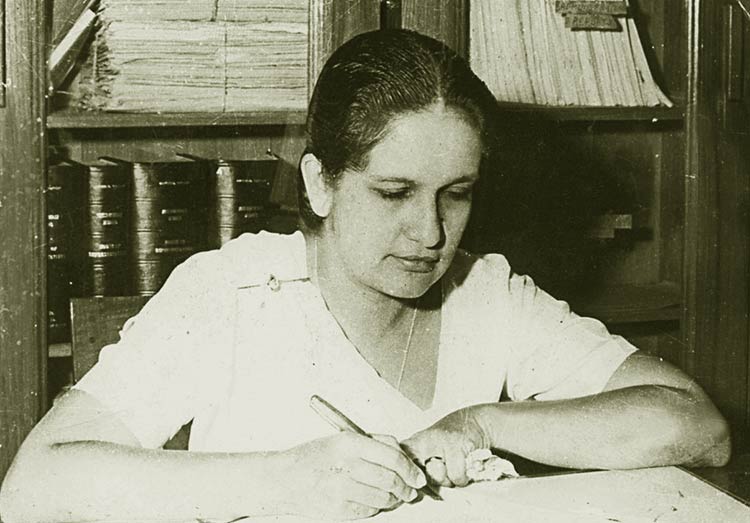
Horagolla mangosteens, rambutan and mangoes at London state dinner
Prime Minister and Minister of Defence and External Affairs (July 1960 — August 1965)
(Excerpted from Rendering Unto Caesar by Bradman Weerakoon, Secretary to the Prime Minister)
Working with S W R D Bandaranaike in the 1956-1959 period had given me the opportunity of appreciating the many-faceted character of Sirimavo Bandaranaike. She was a devoted mother to her three children, ran her very busy and sometimes even chaotic household with a firm hand and had developed an understanding with her husband which allowed him to engage in his political pursuits with minimum interference.
She shared his frustrations at being sidelined by the UNP hierarchy and his joy at his eventual triumph in the elections of 1956. She was, at most times, a loyal supporter of his twin policy of socialism, which she interpreted as putting people first, mixed with nationalism; a pride in local things, and a sensitivity to the cultural heritage of the country. I was convinced from the beginning that, while she was different from Mr Bandaranaike with his concern with purely intellectual pursuits and philosophising, her personality was centered around the basic values — honesty, hard work, discipline and simplicity.
She did not crave adulation, had little time for flattery, and was refined and dignified in speech and behaviour. Often she would be genuinely embarrassed at her husband’s much more uninhibited speech as he related a familiar ribald tale at family social occasions. She would appear as if she had not heard the joke, or if she had, administer a small, usually sotto voce, rebuke. I used to think she was in her looks and ways the embodiment of Ceylonese womanhood.
In her youth — as the wedding pictures showed – she was classically beautiful and many admirers would undoubtedly have sought her hand. There is, possibly an apocryphal story, of how the then eligible Dudley Senanayake had been taken by his parents to see the ‘girl’ at her Walauwwa in Balangoda. Dudley, whose appetite for food was legendary, had been so taken-up by the eats which are customarily served by the prospective bride’s family, that he hadn’t had time to look up and take good note (of the prosective bride). When asked by his mother on the way back what he thought of the girl he is reported to have replied, “What girl? I never saw a girl there.”
This possibly fictitious incident could not have affected their future political relationships, but they were never too warm at any time. Sirimavo’s clothes-sense during the time I served her was always impeccable. She was never overdressed for an occasion or overly adorned with finery and trinkets. ‘She had no special hairdresser or adviser on dress, and her lady companion on visits abroad was usually her younger sister, Patricia (Patsy) who was the perfect chaperon and assistant. The accompaniments – earrings, bracelets, necklaces and so on – to her gracefully draped Kandyan scree, which some felt she wore too high at her waist, were of the highest quality.
Brilliants appeared to be her favourite stone. At all times she favoured local Ceylonese products for her sarees and jewellery. Damayanthi (my wife), who admired Mrs Bandaranaike’s dignity and dress sense, used to tell me that the paddakam necklace she wore round her neck was priceless. It was possibly an heirloom handed down from the Mahawalatenna’s, her mother’s side of the family.
Her preference for the authentic local product was brought out very forcefully at the dinner she hosted when she went to London for the Heads of State and Government meeting of the Commonwealth. She was accompanied by Felix and Lakshmi Bandaranaike and G S (Glanny) Pieries from the foreign ministry. I stayed behind and kept her informed of how things were going here by letters through the DPL bag or by telephone.
One of the prized letters-‘ I found among my papers is the following handwritten two-page letter from her sent through the `bag’ from London. It is on the Dorchester Hotel stationery. I think it gives a vivid picture of the way she tried to do the best possible in any situation, the amazing attention to detail on even the simpliest matter and her great interest in costs and economy. She was always eminently practical.
One cannot fail to be touched by the interest she displays to excellence (the fruits must be the best available), to economy the fruit off the trees in Horagolla), send the fruits on the Air Ceylon flight just in time, and the manner in which she uses all the space available of the hotel stationery.
I replied in the following terms. I take the liberty of reproducing my dictated reply in full.
Colombo, July 10, 1964
My dear Prime Minister,
Thank you very much for your letter.
I am sending by the Air Ceylon flight leaving this evening (Friday) the fruits you have asked for. They will be:
100 mangosteens, picked fresh from the Horagolla trees;
100 rambuttans picked from Mr Louis Siriwardene’s trees; (these are extremely good ones of the best Malwana ‘mas gelavena’ variety); and around four dozen mangoes (the mangoes are of the best Jaffna variety).
The fruits would have been in much better condition for your dinner party on the 16th if they could have been sent later, ie to reach London, say, on the morning of the 16th. I examined this possibility but was appalled at the cost of sending fruit by air by a service other than Air Ceylon. BOAC has a convenient flight but it costs Rs 30 per kilo and the weight of these fruits is likely to be around 40 kilos. That would be roughly Rs 1,200. I was quite sure that with your concern for wasteful expenditure, you would have been very displeased with me had I spent so much money on sending the fruit.
Air Ceylon was very good about the carriage of the fruit. They are going to send it in charge of one of their stewardesses and it would be carried in the cabin of the plane. There will be no charge for this. In the circumstances, I took the decision to send the fruit today and hope that they would be in good condition on the 16th. We have tried to pick fruit which is not too ripe and hope that the climate there will enable it to be kept fresh.
The newspapers here have given full coverage of your visit so far.’ They referred to your passing through Bombay, when you stayed in the plane without getting down and the report commented that you still had a temperature. The London airport arrival was well covered and the fact that you had not said anything to the reporters who had gathered there was not adversely commented on because certain other prime ministers had not spoken to the press too.
Yesterday, I am told the radio carried a short statement you had made, possibly on arrival at Marlborough House. I did not listen to it myself but somebody who did, drew my attention to it. I have asked Vincent Pandita (then director general of Radio Ceylon) to be as careful as possible in checking these before they are released on air because if they are purely impromptu remarks you might make to reporters, it maybe just as well not to carry it on air and relay only the really important speeches you make.
Instead of merely putting over the air every sentence that you speak, Radio Ceylon might well
exercise some selection so as to give a consistency to the speeches you make. They should always see that what they broadcast about you is always to your credit. Pandita (Vincent, member of the CCS who was then director, Radio Ceylon) himself had not heard this particular relay but he said he would go over the tapes himself and keep a check thereafter.
The Parliamentary Group had its first meeting, and from the communique published, everything appears to have gone off very well. An important decision that has been taken is that there would be no criticism of the work of the ministers, and that such criticism should be brought up in the Group in the first instance. This was something you had taken up with the Group earlier, and in the context of the coalition this would be most desirable if it can be practiced.
The question of the Land Commissioner’s votes was not taken up at the Cabinet meeting last Wednesday, because your letter to M/Finance on the matter provided a solution out of the impasse. I have just spoken to Sri Kantha (then Land Commissioner) and he says that it appears that the treasury will agree to this new formula. That would satisfy Mr C P de Silva.
Mr Felix Bandaianaike has just concluded his evidence at the Coup Trial. The House is proceeding with the debate on the Address of Thanks while the Senate, in a late session last night, completed its debate.
Yesterday Mr Philip Gunawardena had said in the House that even if he was invited to be deputy prime minister of this government he would say ‘No’, but that he would support every progressive measure of the government and would fight tooth and nail against the UNP reactionaries. Everything seems to be going on quite smoothly. I wish to take a few days’ leave and hope to go up-country for six days. I shall however continue to be in constant touch with the office.
With every good wish for your success at the Conference.
Yours sincerely,
Bradman
In addition to matters concerning mangosteens and rambutans -the dinner was undoubtedly a great success – the stresses and strains of managing a coalition government were always foremost in her mind. She needed to be informed about the goings-on of Minister C P de Silva, then spoiling for a fight, and there was Philip Gunawardene to whom overtures were being made to come back to the Cabinet.
As it turned out CP abruptly crossed the floor of Parliament in 1964, on what was called the ‘Press gag’ Bill and brought down her coalition government. Sirimavo referred to this dramatically as ‘a stab in the back’. And Philip, after the general elections she called soon after in 1965, went over to Dudley – the so-called ‘reactionaries’ – and helped form the National Government which held power for the next five years between 1965 and 1970.
But these events were yet to be.
Features
Donald Trump and the politics of the new order
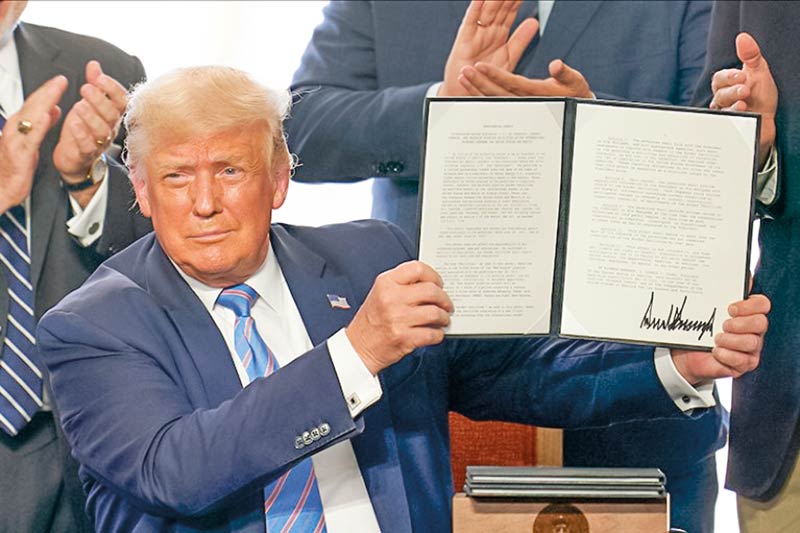
By Uditha Devapriya
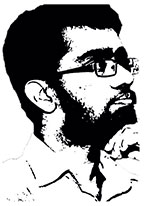 Donald Trump will spend the next three months finalising his Cabinet. He will assume office on January 20, and, if we are to believe what he says, will start implementing his America First policy by imposing some of the most extensive tariffs ever enforced by the United States. He has promised to impose them not just on China, but also Mexico and Canada – unless the latter two do something about illegal immigration to America.
Donald Trump will spend the next three months finalising his Cabinet. He will assume office on January 20, and, if we are to believe what he says, will start implementing his America First policy by imposing some of the most extensive tariffs ever enforced by the United States. He has promised to impose them not just on China, but also Mexico and Canada – unless the latter two do something about illegal immigration to America.
While Canadian Prime Minister Justin Trudeau has his own problems to worry about, and has yet to respond to Trump, Mexican President Claudia Sheinbaum has, in a letter to the president-elect, warned of “dire consequences” should Washington go ahead with such measures. Meanwhile, Chinese Foreign Ministry spokesperson Mao Ning has stated China will prioritise its relations with Mexico. This should not come as a surprise. For Beijing, a second Trump presidency was always on the table. All it needs to do now is capitalise on the contradictions that Trump 2.0 will bring about over the next five years.
All this doubtless makes Donald Trump the most consequential person out there right now. But there is as yet no consensus on what kind of person he is. There are two schools of thought regarding him. The first frames him as an aberration, a quirk in an otherwise well-oiled system of world order. It portrays him as illiberal, in contrast to the rules-based order that the US is supposed to represent. American liberals will go out of their way to convince you that he does not stand for their values. They will ask you not to judge American or Western society based on what Trump and his Cabinet does, be it about migrants, borders, the economy, or DEI (Diversity, Equity and Inclusion) and critical race theory.
The second reading of Trump, on the other hand, frames him as an inevitable though not unavoidable consequence of Western politics over the last half-century, the result of a deterioration in the West-led rules-based order. As US liberals themselves will confirm, the bipartisan consensus which existed between Democrats and Republicans is no longer as strong as it was. The Republican Party has moved so far to the right that the Democratic Party, which has been moving to the right since the Clinton presidency, has more or less lost track. This has had serious repercussions on American foreign policy.
If the recent presidential election proved anything, it is that fact-checking, moderation, and centrism no longer determines outcomes in US elections. Since 1993, the Democratic Party has shown itself to be willing in accepting moderate elements from other political groups: during this election cycle, for instance, it co-opted sections of the Republican Party opposed to Trump, including those who held high security and intelligence positions during his first presidency.
Yet the end-result was a resounding, though not landslide, defeat for Harris, and a consequent denunciation of her campaign by her own colleagues, including Senator Bernie Sanders, who accused her managers of not concentrating on the working class.
It also proved that Trump values loyalty over almost everything else. I use the qualifier “almost” with some trepidation, because we have yet to see to what extent his need for loyalty will shape his second presidency. Some of his Cabinet picks and other appointments, including Elon Musk, Vivek Ramasamy, and even Vice-President J. D. Vance, are known to have been critics of Trump in the past. He appears to be quite willing to overlook their past affiliations. However, in side-lining Nikki Haley and Mike Pompeo – and making a song and dance about it on X – shows how much he values loyalty now.
As a US political analyst told me, it is difficult to predict Trump – as his appointment of Marco Rubio, a critic of Trump during his first presidency, shows. One can justify Rubio’s appointment, though, on the grounds that while being critical of Trump, he did not go out of his way, as Haley and Pompeo, and Mike Pence did, in displaying his opposition.
All of this confirms that, as far as foreign policy goes, there will be perceptible shifts in the years to come. The liberal view of things is that the policies of Trump 2.0, in particular the tariffs on China and even US allies, will impact the US economy badly. Some countries will be affected more than others. Europe, for instance, is already reeling from Ukraine, and it has turned into an “adjustment variable” – as Joseph Borrell bluntly put it recently – for US foreign policy. The European Union was already becoming wary of Joe Biden’s side-lining of their concerns. In Trump, they will likely encounter someone even more willing to throw them to the side in pursuit of US foreign policy objectives.
America First, Trump’s preferred policy, is a morass of contradictions. Liberals who advocate for an interventionist foreign policy will argue that it will lead to the US absconding from its responsibilities on the world stage. But will America First necessarily mean an abandonment of its interventionist foreign policy? Interventionism has been a hallmark of the US for at least the last century and a half: it is what has defined and secured its superpower status. The Trump presidency will accommodate a different vision of interventionism: determined less by a concern for rights and values than by a concern for immediate interests. Lindsey Graham’s denunciation of the International Criminal Court warrant on Israeli Prime Minister Benjamin Netanyahu and his threat to US allies that comply with it is a case in point.
My prediction is that the foreign policy of the second Trump presidency will play out over four specific areas or battlegrounds: border and migrant issues vis-à-vis Mexico and the rest of Latin America; trade and tariffs vis-à-vis China; greater engagement in the Indo-Pacific vis-à-vis allies like India; a deepening of ties with Israel, regardless of consequences for stability in West Asia; and a policy of confrontation with Ukraine vis-à-vis Russia.
In all this, the world is likely to confront a major contradiction: a US president who says he prioritises “peace through strength”, but has little regard for the concerns of US allies. Trump’s attitude to Taiwan is a classic example: he reiterates his support for the country vis-à-vis China, but also lambastes it for having stolen from the US chip industry. One can justify these turnarounds by framing Trump as an exception. Yet in terms of the shifts in US foreign policy over the last 30 years, he is all too characteristic of that country and the fecklessness with which it handles relations with its own allies.
Uditha Devapriya is the Chief International Relations Analyst at Factum, an Asia-Pacific focused foreign policy think-tank based in Colombo and accessible via www.factum.lk. He can be reached at uditha@factum.lk.
-

 News6 days ago
News6 days agoSri Lanka’s first seven-star hotel ready for opening in 2025
-

 Business5 days ago
Business5 days agoLaunching in Kandy of SL’s first seven-star hotel, valued at Rs. 9 billion
-
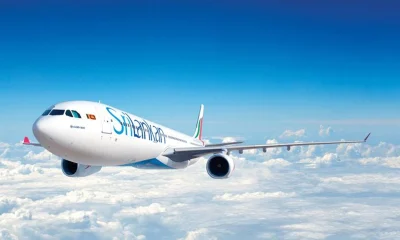
 Opinion4 days ago
Opinion4 days agoFuture of SriLankan
-
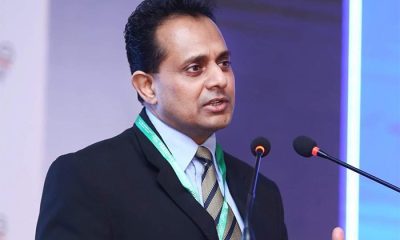
 Business5 days ago
Business5 days agoSri Lankan appointed Vice President, Global Rural Tourism Council
-

 News5 days ago
News5 days agoCourt to be moved against Ranil over loss of state funds
-

 Business7 days ago
Business7 days agoHigh powered Japanese business team visits Hambantota Port
-

 Editorial6 days ago
Editorial6 days agoLucky millers
-

 Editorial5 days ago
Editorial5 days agoPolitics and doctoral embellishments



